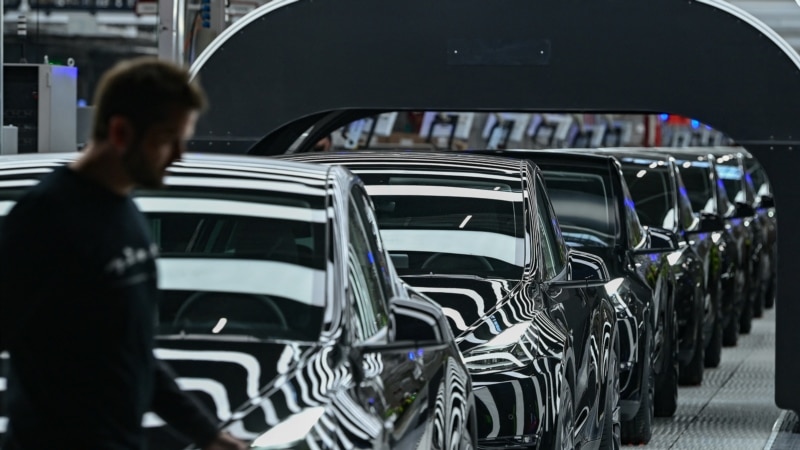Tesla’s European Gigafactory near Berlin halted production and was left without power after suspected arson set an electricity pylon ablaze in a field close to the site early on Tuesday morning.
Police said the fire brigade was working to put out the fire in the area southeast of the German capital, adding that the blaze had not spread to the Tesla plant itself.
A spokesperson for the U.S. electric vehicle maker confirmed production had stopped and the site had been evacuated. Tesla’s Frankfurt-listed shares were down 2.8% at 1006 GMT.
Police are investigating a possible arson attack in the area, which has been the focus of environmental protests against the Tesla plant’s planned expansion.
They would not confirm media reports that bomb disposal units had been deployed after emergency services found a sign saying “ordnance buried here.”
Workers for energy company E.ON, which is in charge of the plant’s grid connection, are repairing the damage to the high-voltage pylon, which knocked out electricity in the area, the company said.
Tesla’s ambitions to expand its plant, which has a capacity of around 500,000 cars a year, hit a roadblock when local residents voted down a motion to fell trees to enlarge it.
The U.S. EV maker wants to double the site’s capacity to 100 gigawatt hours of battery production and 1 million cars per year, setting it up to dominate the European market.
Environmental activists have built and occupied treehouses in the forested area they expect to be cleared if the expansion goes ahead.
A spokesperson for the Robin Wood, one of the groups that is protesting against the expansion, said they had no knowledge of what could have caused the incident.
“We’re totally surprised by the situation,” the spokesperson said by phone, adding that a full statement would be made later.
Citizens in Gruenheide last month voted against a motion to clear enough forest for the company to build extra logistical spaces like a train station and warehouses, leaving it to local authorities to decide how to proceed.
The plant’s production ramp-up has slowed though the carmaker produced 6,000 cars in a week for the first time in January.

